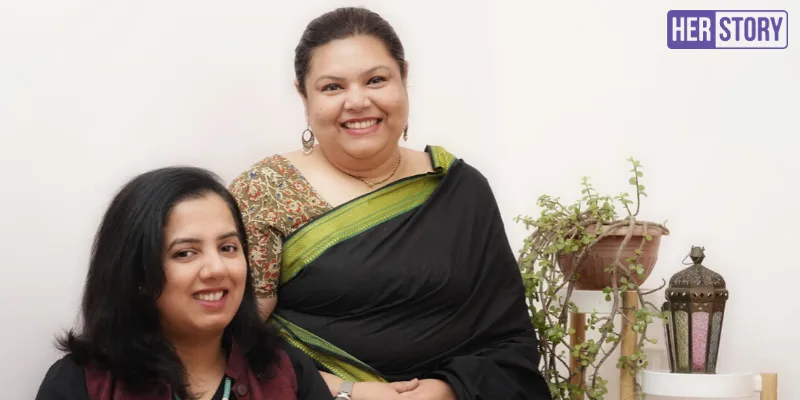These women entrepreneurs are promoting indie artisans and weavers through their eco-friendly clothing brand for children
Seeing a lack of a brand providing affordable and locally made clothes, Shilpi Sharma and Satya Nagarajan set out to build Indie Project Store, which also helps artisans, weavers, and women-run businesses make money.
Buying clothes for children is a tough task. The apparel industry is flooded with retailers and manufacturers but you can’t find many children-only brands, especially when it comes to infants and toddlers.
Shilpi Sharma and Satya Nagarajan were perplexed when they noticed this gap. The two mothers couldn’t find locally-made, quality products for their children. Shilpi found it difficult to find lightweight clothes made from natural fabrics for her one-year-old son. The ones she did find were either too expensive or imported.
The two decided to start Indie Project Store, a socially conscious brand selling locally-produced clothes for children.

Shilpi Sharma and Satya Nagrarajan, co-founders, Indie Project Store.
The business model
Hyderabad-based (IPS) was started in 2016. The co-founders wanted to not only help parents find locally made and environmentally-conscious clothes, but also help artisans, weavers, and small scale businesses run by women to generate income.
Satya says, “We outsource our manufacturing work orders to small tailoring units, NGOs, social enterprises, and home-based tailors as we want to create more income-generating avenues for such setups.”
The duo refers to IPS’ working model as a “business model with a heart” as it also retails clothes from 60 other small businesses on its website. Ninety percent of these businesses are run by women entrepreneurs.
The business model stems from Shilpi’s and Satya’s desire to help independent artists and local businesses. This is also reflected in the naming of Indie Project Store, where ‘Indie’ is short for independent.
However, starting up was not easy, they say. Even though the two women had a solid idea, neither had any experience of running a business.
“We had a lot of on-the-job training. We had no entrepreneurial experience. So, it took time, energy, and a lot of R&D to set up sustainable business processes,” says Satya.
Growing the business
Shilpi and Satya began their business with an initial investment of Rs 25,000. The co-founders claim that IPS has raked in a revenue of over Rs 38 lakh, with a 15 percent year-on-year growth since inception.
The duo began by selling through Facebook and Instagram. Today, it has its own ecommerce site. Its USP lies in its abundant use of traditional Indian fabrics.
“We use 100 percent pure cotton and work extensively with traditional Indian natural fabrics like ikat, Kalamkari, mangalagiri, khadi, mulmul, handloom, and hand block prints,” says, Satya.

Children wearing clothes made by IPS.
IPS sources all its fabrics from vendors and local suppliers, who work directly with the artisans and weaver communities. After a detailed study of the latest styles, trends, seasonal colour palettes for designing, fabrics, and more, the clothes are made keeping practical needs and comfort in mind.
The brand caters to children up to the age of seven, with an accessible price range of Rs 300 to Rs 2,500.
Initially, its market was limited to just urban India. Today, the startup receives orders from Tier-II and III cities. It also has clients among the NRI population in the US, Singapore, and the Middle East.
In the future, the co-founders hope to add new retail channels for IPS and add more small business vendors to their platform.
“Our main goal is to encourage Indian consumers to appreciate ‘Made in India’ products from small businesses and make such products easily accessible for regular Indian households,” they say.
(Edited by Saheli Sen Gupta)









